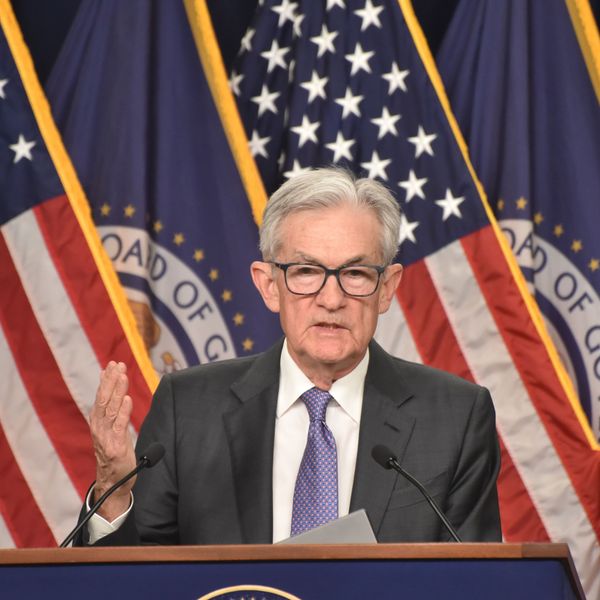As the senate debates Federal Reserve chairman Ben Bernanke's reappointment, it is striking how the media views blaming Bernanke for the Great Recession as being out of bounds. Of course Bernanke bears much of the blame for America's economic collapse.
He was either in, or next to, the driver's seat for the last seven years. Bernanke was a member of the board of governors of the Federal Reserve since the summer of 2002. He served a six-month stint as head of President Bush's council of economic advisors beginning in the summer of 2005 and then went back to chair the Fed in January of 2006.
This crisis is not a weather disaster like Hurricane Katrina; it is a man-made disaster that was brought about by seriously misguided economic policy. And, after Alan Greenspan, Bernanke was better positioned than any other person in the country to prevent this disaster.
The basic argument is very simple. The US had an enormous housing bubble. This bubble drove the economy ever since the last recession in 2001. It propelled the economy directly through a building boom that sent housing construction to record levels. Indirectly, it led to a consumption boom as people spent money based on the $8 trillion in housing equity that was temporarily created by the bubble.
When the bubble collapsed it was inevitable that it would lead to the sort of disaster that we are now seeing. We lost close to $500bn in annual demand due to the collapse of housing construction. The building boom created an enormous glut of housing. There will be little need for new construction for several years in the future.
The disappearance of trillions of dollars of bubble-generated housing equity led to a plunge in consumption. Annual consumption has fallen by close to $500bn. If we add in a loss in demand of close to $200bn associated with the bursting of a bubble in commercial real estate, the collapse of the bubbles led to a fall in annual demand of close to $1.2tn. The Fed has nothing in its bag of tricks that allows it quickly replace $1.2tn in demand, which is why the country is now mired in double-digit unemployment.
In spite of the heroic efforts at obfuscation by many economists, there is not really much to dispute in the above story. Add in the fact that the bubble was both recognisable and preventable, and you have a very solid indictment of Bernanke.
The bubble was easy to recognise, Bernanke just failed to do it. Nationwide house prices had already experienced an unprecedented 30% increase by the summer of 2002. Since there was nothing in the fundamentals of the housing market to justify this run-up, and no remotely corresponding increase in rents, Bernanke should have already been aware of the housing bubble by the time he joined the Fed in 2002.
The Fed has a large arsenal with which to attack a housing bubble, but the first weapon is simply talk. If Greenspan and Bernanke had used their platform at the Fed to educate Congress, the financial industry, and the public at large about the existence of the housing bubble and the risks it posed, this likely would have been sufficient to pop it.
This is not about mumbling "irrational exuberance," it's a question of using the Fed's full research capacities to document the existence of a housing bubble (they actually did the opposite) and then disseminating this research as widely as possible. If this proved inadequate, the Fed also had substantial regulatory powers to curb the deceptive subprime loans that helped inflate the bubble in its later stages.
If talk and regulation failed, then the Fed could have used interest rate hikes. A policy of raising interest rates with the explicit target of bursting the bubble - for example, a commitment to raise rates until house prices fall, - would almost certainly accomplish its goal in fairly short order.
Bernanke and his sidekick, Greenspan, chose to take none of these measures. Instead they insisted everything was fine the whole time. Things were not fine and the country is paying the price. And yes, it is very much Bernanke's fault.


